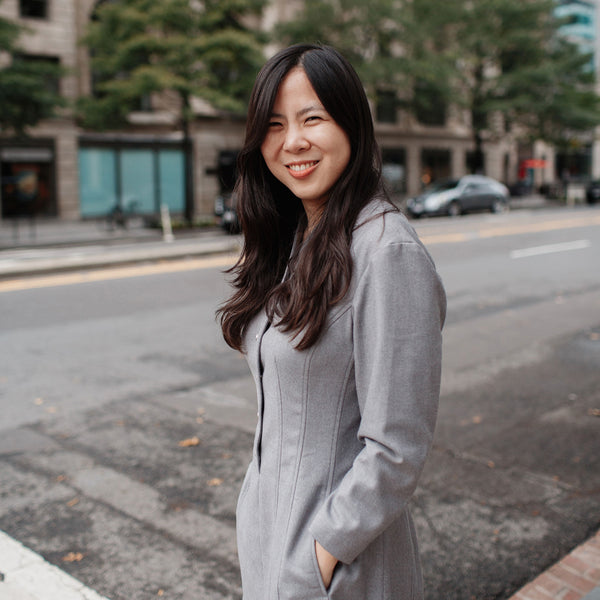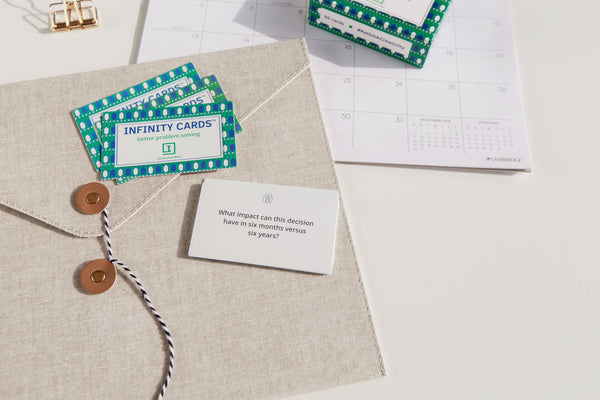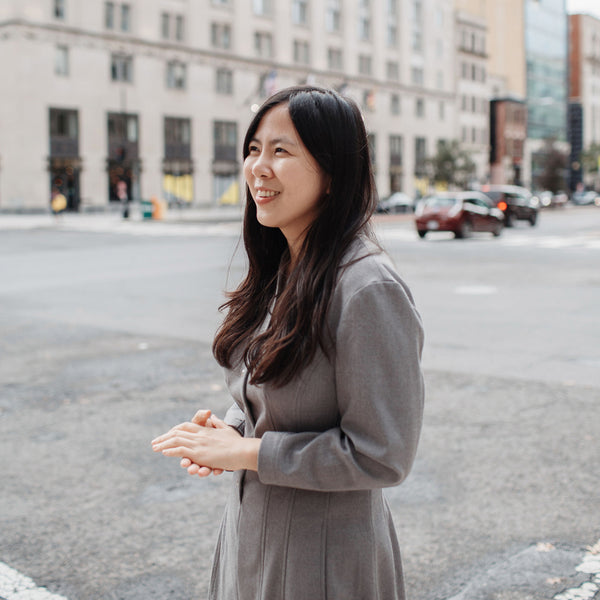
As an author, speaker, and founder and CEO of InnovatorsBox®, Monica Kang is transforming today’s workforce through the power of creativity. She is driven by the belief that everyone is innately creative and that creativity can be used to catalyze personal and professional change. We've been working on exciting projects together, but this week, we sit down to have real conversations about self-doubt, the comparison syndrome, and the importance of staying humble.
Where do I start? There is a sense of fear of not being good enough and not figuring out how to grow your business the way you had hoped. What if there is a more productive way to grow? What if there is a more effective way to serve clients? No matter how many resources I read about how to improve, I’m reminded existing solutions are different from mine. Every step of learning takes time and iterations. If I am afraid of something, I see it as an area of improvement. If I care about it, I should solve the problem and seek to explore new solutions in different ways. Remaining fearful won't magically solve problems. I have to step up.

Clients come to us because they want to find new ways to strengthen and unlock their team’s creative thinking skills. This challenge is the same whether it’s found within a newly formed department or an existing team that has worked together for years. They all want to know how they can think, collaborate, and problem-solve more creatively. No matter where you go, people are the greatest asset in an organization and our clients know that a well-connected, creative, and proactive team are the key to their success. A creative team are better collaborators and problem-solvers who thrive in a culture that values new ideas.

We help clients rethink creativity as a holistic skill through experiential educational programs and products. Through our workshops, speaking engagements, facilitations, consulting, and creative card games, we help businesses understand creativity. They’ll learn how to build a creative culture, be creative leaders, and embed creative thinking into their teams. All of this helps make creativity a daily habit and regular part of the work routine.
Our programs focus on learning by doing for the greatest impact. Participants discover the value and importance of creativity on their own by examining their own beliefs on creativity and interacting with others. And while they’re discovering the importance of creativity, they learn why fun, mindfulness, and creating an intentional space to play with new ideas is the key to thriving.

“It is only with the heart that one can see rightly; what is essential is invisible to the eye” -Antoine de Saint-Exupéry, The Little Prince
Nothing is too small. Nothing is too big. Never forget to appreciate what is truly important.
Details and intention matter. Never forget why you wanted to start. Fill each day with curiosity and the hunger to learn more. Don’t ever plan on going on this journey alone, even if you are a sole founder. Bring a village of allies and mentors with you. Celebrate every milestone, but be humble. Continue to dream big, but also take action to achieve your dreams. Never forget that this is a marathon and while it may seem impossible, your determination and willingness to show up every day is what will help you succeed. Starting your own company is one of the most exciting, humbling, and difficult things you could ever do. You are going to learn a lot, struggle a lot, and grow a lot. Be ready to change, and yet never forget who you are. Don’t take yourself too seriously. Enjoy life.


We are living in unprecedented times.
As a small business, we must figure out a way to survive and communication is key to survival. While large brands may have teams of communications experts to help craft their crisis communications and messaging, small businesses might not have such luxury. Read on to find the top 5 examples of good crisis emails.
